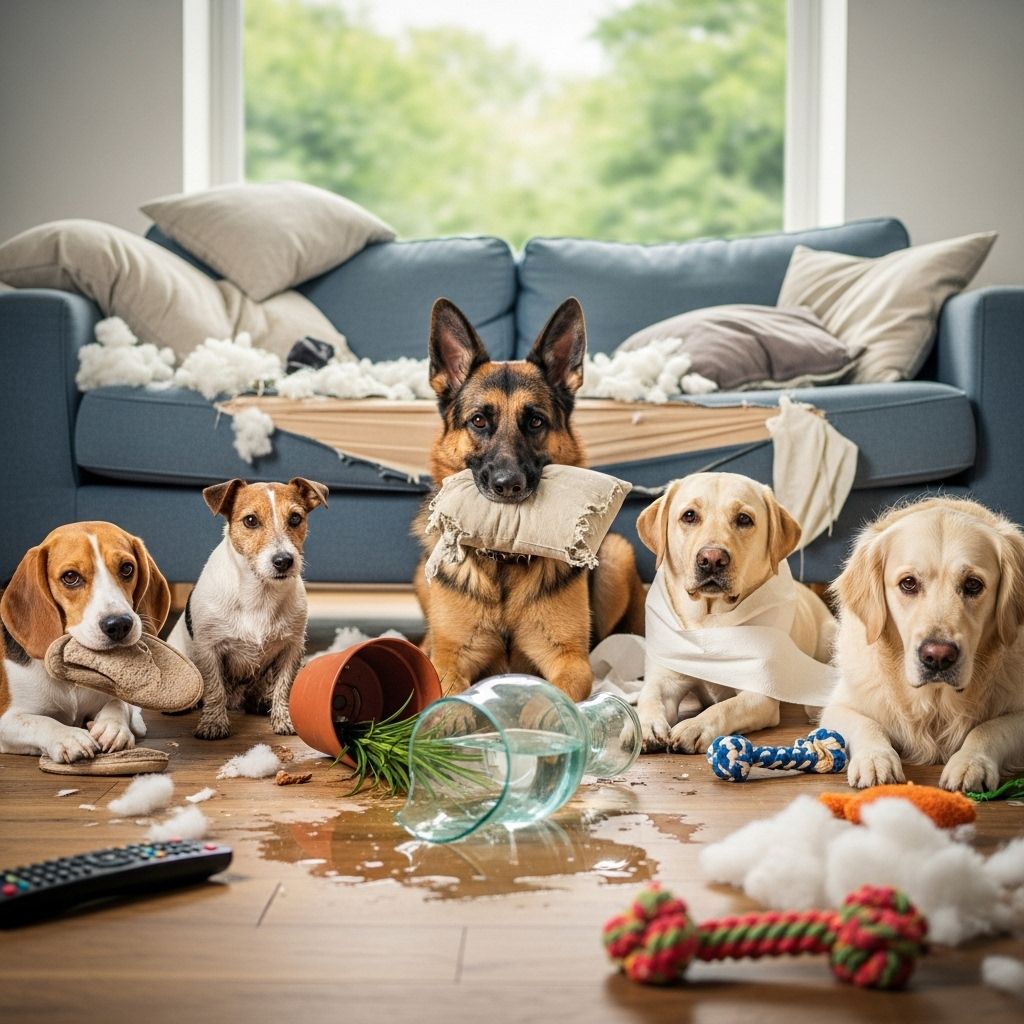5 Most Destructive Dog Breeds
Explore why playful pups become homewreckers and how their instincts fuel the chaos.

Introduction to Destructive Dog Breeds
Dogs bring joy and companionship into our lives, but some breeds are known for their destructive tendencies. Whether it’s chewing furniture, digging up gardens, or causing general chaos, these lovable but mischievous dogs keep their owners on their toes. A study by money.co.uk analyzed feedback from pet owners to identify the most destructive dog breeds, and the results might surprise you.
Causes of Destructive Behavior
Before diving into the list, it’s essential to understand why dogs exhibit destructive behavior. Common causes include boredom, lack of exercise, separation anxiety, and inadequate training. By addressing these underlying issues, owners can reduce the likelihood of their dogs turning into household wrecking balls.
The Most Destructive Dog Breeds
- Labradors: Known for their friendly nature, Labradors are also notorious for chewing everything in sight. Their boundless energy and curiosity make them prone to accidents, like going to the bathroom on the carpet or digging up gardens.
- Beagles: These small but energetic dogs are often guilty of digging up flower beds and getting into mischief due to their strong instinct to explore and investigate.
- Collies: With a strong herding instinct, Collies can be quite active and may engage in destructive behavior if they lack stimulation or exercise.
- Staffordshire Bull Terriers: These dogs are known for being clumsy, often breaking items like phones, plant pots, and glasses by accident.
- Shih Tzus: Despite their small size, Shih Tzus can be quite destructive, especially when it comes to digging up gardens.
Managing Destructive Behavior
To manage the destructive tendencies of these breeds, owners should focus on providing adequate exercise, mental stimulation, and consistent training. Here are some tips:
- Exercise Regularly: Ensure your dog gets enough physical activity to burn off excess energy.
- Mental Stimulation: Engage your dog in puzzle toys or obedience training to keep their minds active.
- Consistent Training: Use positive reinforcement techniques to discourage unwanted behavior.
- Supervise: Keep a close eye on your dog, especially in areas prone to destruction.
Why Dogs Are Destructive
Dogs are naturally curious creatures, and their behavior can be influenced by several factors, including their breed traits and environmental conditions. For instance:
- Breed Traits: Some breeds, like Labradors and Beagles, have strong instincts that drive their behavior, such as herding or hunting.
- Environmental Factors: Lack of exercise or stimulation can lead to boredom, which often manifests as destructive behavior.
Frequently Asked Questions (FAQs)
Q: How can I prevent my dog from being destructive?
A: You can prevent destructive behavior by providing regular exercise, mental stimulation through puzzle toys or training, and ensuring consistent supervision. Additionally, training with positive reinforcement helps discourage unwanted actions.
Q: Are all Labradors destructive?
A: Not all Labradors are destructive. However, they are known for their high energy and curiosity, which can lead to destructive tendencies if not properly managed with exercise and training.
Q: Can I train a destructive dog?
A: Yes, most dogs can be trained out of destructive behaviors. Consistent training, positive reinforcement, and ensuring your dog receives adequate exercise and mental stimulation are key strategies.
References
- https://www.countryliving.com/life/kids-pets/a63412727/destructive-dog-breeds/
- https://www.herberttrial.com/the-10-most-dangerous-dog-breeds/
- https://www.blackburnromey.com/most-dangerous-dog-breeds/
- https://www.countrylife.co.uk/out-and-about/dogs/the-six-most-destructive-dog-breeds-231852
- https://iheartdogs.com/dog-breeds-that-are-the-most-destructive-when-bored/
- https://www.ellevetsciences.com/pet-care/12-most-challenging-dog-breeds-for-first-time-owners/
- https://www.youtube.com/watch?v=cuDfystslho
Read full bio of medha deb












